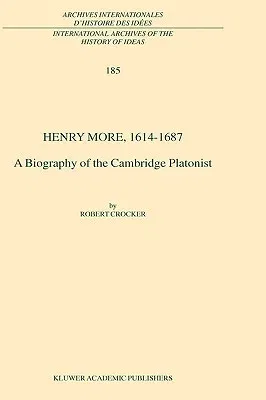R Crocker
(Author)Henry More, 1614-1687: A Biography of the Cambridge Platonist (2004)Hardcover - 2004, 30 November 2003

Qty
1
Turbo
Ships in 2 - 3 days
In Stock
Free Delivery
Cash on Delivery
15 Days
Free Returns
Secure Checkout

Part of Series
International Archives of the History of Ideas Archives Inte
Part of Series
Archives Internationales D'Histoire Des Idees/ International
Part of Series
International Archives of the History of Ideas / Archives In
Print Length
278 pages
Language
English
Publisher
Springer
Date Published
30 Nov 2003
ISBN-10
140201502X
ISBN-13
9781402015021
Description
Product Details
Author:
Book Edition:
2004
Book Format:
Hardcover
Country of Origin:
US
Date Published:
30 November 2003
Dimensions:
24.74 x
16.76 x
2.26 cm
Genre:
Modern
ISBN-10:
140201502X
ISBN-13:
9781402015021
Language:
English
Location:
Dordrecht
Pages:
278
Publisher:
Series:
Weight:
639.56 gm